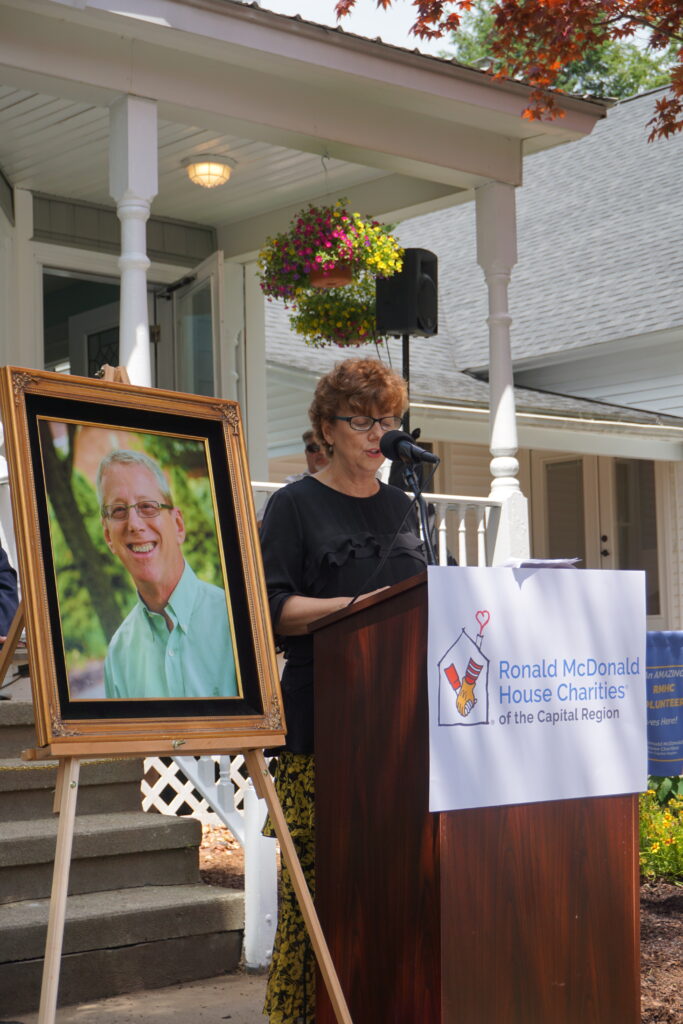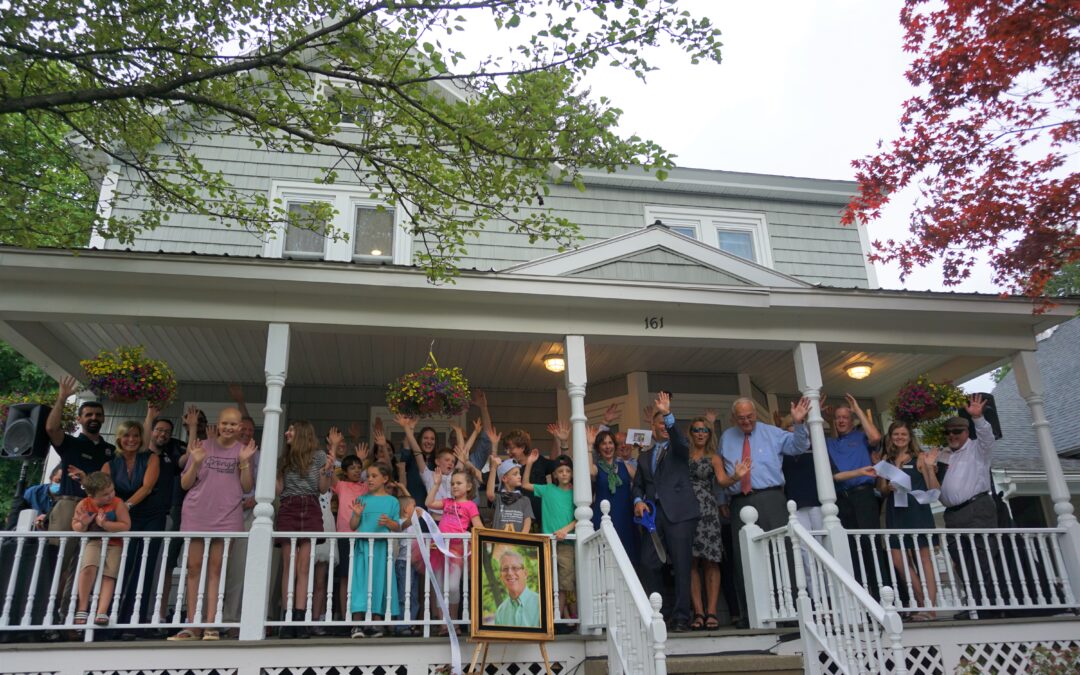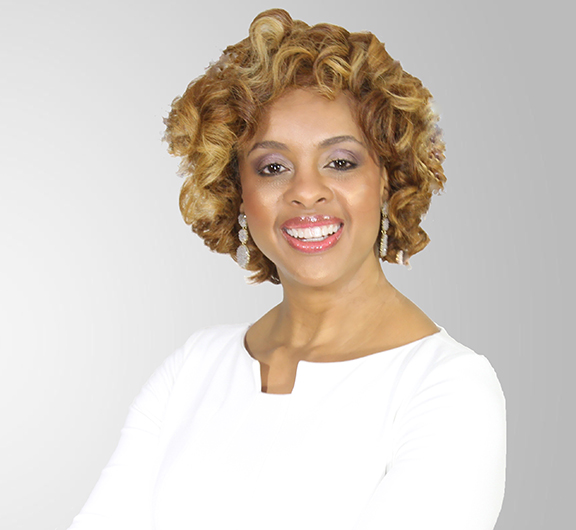
On this week’s 51%, we discuss the growing burnout among healthcare workers during the coronavirus pandemic, and why some are leaving the profession. We also visit a new vacation spot for families and children battling serious illness, and speak with the new chief of surgery at a major hospital in New York state.
Guests: Candie St. Jean, nurse case manager at Cooley Dickinson Hospital; Dr. KMarie King, chief of surgery at Albany Medical Center
Follow Along
You’re listening to 51%, a WAMC production dedicated to women’s issues and experiences. Thanks for giving us a listen, I’m Jesse King. We’re bringing you a trio of healthcare stories today — starting, of course, with the coronavirus pandemic. At this point, we’re all familiar with tales of the nurses and doctors battling the virus on the front lines, but what does the battle look and feel like now that the vaccine is out, and the country is straining for some version of normalcy?
Well, in some ways, it’s not all that different. COVID-19 hospitalizations are on the rise due to the Delta variant. Hospitals across the country are once again struggling to make room for new patients, only this time many of them rejected the vaccine that was supposed to be the light at the end of the tunnel.
So many healthcare workers are burning out. Some are quitting, exacerbating staffing shortages and wait times nationwide. In March, Beacon Research in Boston surveyed 500 nurses across Massachusetts, and 37 percent said they see themselves leaving the profession sooner than they had planned. The Massachusetts Nursing Association is calling for a number of reforms, including better transparency from hospital administrators, decreased mental health boarding in emergency rooms, and the presumption that any healthcare staff diagnosed with COVID-19 caught it while on the job. A nurses’ strike at St. Vincent Hospital in Worcester has stretched on for over six months over disputed working conditions.
I recently spoke with Candie St. Jean, a nurse at Cooley Dickinson Hospital in Northampton, Massachusetts.
What is it like, being a nurse right now?
The talk is, you know, healthcare workers experiencing burnout, which is very, very real. But I want to stress, number one, burnout doesn’t just happen because of a pandemic. Many of the things, if not all of the things that we’re experiencing right now, were happening before COVID even hit in 2020. You know, not having adequate staff, etc. But the past few months, the people that are hospitalized are some of the most complex [cases] that we’ve ever seen. We’ve had patients come in that didn’t seek care during most of 2020, so they’re understandably much more complex. Also, socially, emotionally, people that didn’t have enough support before this – many of the supports and resources were cut during the pandemic – and it just contributes to the complexity of patients. We’re seeing more mental health admissions, we’re seeing more addictions, alcohol intoxications, things like that, because of resources that have been cut.
So we’ve been taking care of these types of patients in recent months, and now we’ve got COVID ramping up again. It doesn’t seem that the proactive planning has been happening this time around, either. You know, last year, elective procedures were cancelled. There were things put in place to not only save beds, but provide more adequate staffing. Those things are not in place right now. And yeah, there have been a number of healthcare workers that have left the profession, because they just can’t do it anymore. I have had many of my nurses reach out to me in recent weeks and months that they feel their licenses are in jeopardy, because of the assignments they have. They have too many patients. We don’t have enough ancillary staff. You know, there’s one unit in particular that never has a secretary to answer the phone. And as a case manager – we coordinate with others outside, whether it’s homecare services, whether we’re trying to get somebody into a skilled nursing facility, we do coordination with all of those folks – and just staffing everywhere is suffering.
Now, I’ve heard some reports of some health care workers not getting the vaccine. I know in New York, a federal judge temporarily blocked the vaccine mandate for healthcare workers because of opposition to it. The mandate didn’t allow for religious exemptions. Is vaccine hesitancy something that you’re seeing as well?
Absolutely. Yes. As a union rep, I have had some nurse colleagues come to me in terms of you know, how to support them in their desire not to get vaccinated. Our Hospital Corporation, they have mandated that everyone needs to get the vaccine by October 15.
How does that complicate things, then? Does that result in any kind of tension among staff? It’s become so political.
Exactly. And that’s, you know, that’s why it is a tough subject. Because, yes, unfortunately, I think with this particular vaccine, politics has outweighed the science for many people. I have my own personal feelings about it, you know, I don’t understand how people can decide not to get the vaccine given what is happening, given what is happening with the Delta variant. But I blame that on misinformation. So it’s a lot of educating people – but it’s really hard, because, you know, even in my personal life and talking to people, it’s very frustrating when I say, “But I work in a hospital, like, how are you not hearing what I’m saying?” It’s like, people don’t want to believe the truth, because they’re too busy listening to the misinformation that’s out there. We’ve had people that are in [the hospital] with COVID, we’ve had a couple that don’t believe that they have it, or, you know, are still hesitant to get the vaccine themselves. So [we] just try to educate people as best as we can, without judgment.
Just to clarify, did you say that some people have been in the hospital with COVID, but then don’t believe that they have it?
Yes. Or a family member hasn’t believed that they’ve had it, and they react with anger towards people at the hospital. And I will say, that’s something in general, that’s not just happening in the hospital. And I’ve talked about it with colleagues and with people in my personal life, that people just in general…tensions seem to be high. There seems to be less tolerance and compassion and empathy. And those of us inside the hospital in particular, people just seem to be angrier and more demanding. So there’s multiple reasons of why health care workers are feeling stress and burnout.
I mean, I’ve been to the doctor a couple of times over the past couple of months, and I’ve noticed that tension just in waiting rooms myself, yeah. If there was something that you could tell people about what it’s like on your side, what would you like them to know? People who are coming into the doctor’s office, or coming into the hospital.
Thank you so much for that question, because that is something that myself and colleagues have talked about a lot recently. So last year, healthcare workers were the heroes, and that was kind of the focus. And while the majority of people that I know have never really felt comfortable with that, this year, it feels drastically different. This is more for our leadership and management, but also the public – we want the public to know that we are absolutely 100 percent doing the best that we can. Nurses and healthcare workers in general, our nurses, our physicians, who also in many instances have more patients than they should to take care of – we’re a profession that rises to the occasion and does what we have to do. We just need people to understand that we don’t have the resources that we had last year, we don’t have enough staff. So just asking for, I guess, a level of compassion and understanding and patience our way.
And what are some ways that you think employers or legislators can support health care workers right now?
Well, number one, they need to work on retaining the staff that we have. They need to have better incentives to also get people to work in this profession. Here in Massachusetts, we had a ballot question in 2018 that would have given us safe patient ratios – “a nurse should only have X number of patients to care for” – to make it safe. Unfortunately, that ballot question did not pass because the “no” campaign spent millions of dollars giving people misinformation. I wonder that, if the pandemic happened before the ballot question, if the outcome would have been very different. I believe in my heart that it would have, because I’ve had emergency room nurses that have had eight patients. And when you learn what is going on with the eight patients – someone is seizing, someone is not breathing, someone is having an anaplastic reaction. You know, it’s just very unsafe. So management needs to recruit and retain staff.
They also need to protect healthcare workers from violence. That’s something that I haven’t said before now, is there’s been a serious uptick in violence towards health care workers. I think, if anything, this pandemic has shown that people that are depended upon in the hospitals, like our support staff, like security, on the outside, our ambulance personnel, EMTs paramedics – they are not paid what they are worth. That is something else that’s happening out there, is our ambulance companies are also short on staff.
And it’s not just about the money. We have a hospital-wide bonus at our hospital that we as a union committee negotiated with the hospital, to try to get people to cover shifts that are not covered. And we’re to the point now where people are saying to me, “Candie, it’s not about the money anymore. I just I can’t do it. I need my time off to recharge.” Which is completely understandable. So those are some things that they can do.
The main thing to stress is, a lot of the articles I read – not just in my area, but nationally – you know, burnout is being blamed on the pandemic. And I think I just want to stress that the pandemic heightened and brought to light for the public things that were already happening in the hospitals, and it just exacerbated these things.
Now, the pandemic has been hard on everyone — nurses aren’t the only ones facing burnout. But for caretakers, particularly those nursing sick children, the pandemic compounded a level of stress that was already there. Since 1974, Ronald McDonald House Charities has tried to alleviate that stress by providing housing and supplies for children and families battling serious illness. The organization has more than 375 homes worldwide located near major hospitals, so families can focus on treatment rather than transportation, or whether they’ll have a roof over their head.
One of its latest offerings, however, is far from a hospital bed. The “Family Retreat at Krantz Cottage” is smack dab in the middle of Lake George, New York, a popular family vacation spot in the foothills of the Adirondacks. After two years of renovations, the charity’s Capital Region chapter officially cut the ribbon in July, with more than 100 supporters, donors, and families in attendance.
“I’d like to have all the kids come up and hold on to the ribbon,” said CEO David Jacobsen, as supporters crammed behind a ribbon along the cottage’s porch.

The “cottage” is a two-unit home at 161 Ottawa Street — formerly the law office of Howard Krantz, a longtime attorney for the village who died of cancer in 2015. It’s handicap accessible, newly refurbished, and lovingly decorated, with intricately-painted landscapes and hand-crafted furniture. Families will find it stocked with books, board games, food, and even some gift cards to Lake George’s local attractions.
Jacobsen says he hopes to see kids hitting the beach, playing games, and generally just being kids — rather than worrying about their next hospital visit.
“In a few days, the first guest family will arrive. Here, they will be able to do what matters most: spend time together,” he says.
Resident House Director Debbie Ross is the brains behind the project, and came up with the idea while loaning out her summer home to Ronald McDonald House families several years ago. She says she saw first-hand how crucial the memories made in those summer months could be. For families with children experiencing terminal illness, that vacation could be their last as a family. So when her summer home tragically burned down, she brought the idea to Lake George Mayor Robert Blais.
“We’ve had our challenges,” she says. “When, in March, global said we could move back into the house, we had a gutted building, and we couldn’t find any contractors. We called everybody. One of our Amish families stepped up and put the siding on this building. I know a lot of you on Ottawa Street have gotten desperate calls from me, I’m sorry about that. I met a contractor recently, and I introduced myself, and he said to me, ‘Oh you’re the beggar.’ And I said, ‘What?’ And he said, ‘My boss said that you beg for sick children and their families.’ So I wear that hat very proudly.
We know that medicine heals, but we also know being together, as a family, and with joy and togetherness, and making lasting memories — that is healing too.”
The Ronald McDonald Family Retreat at Krantz Cottage is open year-round. Families in need can apply for a five-day, four-night stay running from Saturday to Wednesday at the chapter’s website, rmhcofalbany.org.
Our last segment today is also in upstate New York. Albany Medical Center welcomed Dr. KMarie King as its new chief of surgery and chair for the department of surgery at the start of the month. She replaces Dr. Steven Stain, who previously led the department for 15 years, and her appointment makes her the first Black female chair of surgery at an academic health science center in the U.S.
She came to New York from Atlanta, where she was a professor at the Morehouse School of Medicine and chief of surgery at Grady Memorial Hospital. I got the chance to speak with her on just her second day on the job. King says she knew she wanted to work in medicine at just 8 years old, and her focus narrowed to surgery once she got to medical school.
What made you want to become a surgeon?
A female surgeon and plastic surgeon, Susan McKinnon, came into the classroom and shared with us her before-and-after cranial facial surgery photos. I was like, “Wow, this is amazing. Look, she can really transform the life [of children].” This is at Washington University School of Medicine in St. Louis. And at that point, I decided as a second year, I want to do surgery. And so I started following the plastic surgeons around every time, every chance I got, and then once it was my time officially to go into my surgical rotation, I saw the liver and intestines and said, “I know what I want to do. I want to be a liver and pancreas surgeon.”
I thought it was beautiful. I’ll be honest, I thought the liver and pancreas is beautiful – but they’re also very complicated organs. And I watched these expert surgeons manipulate these organs that don’t like to be touched, don’t like to be manipulated. They also have some of the worst diseases that a human can get in the abdomen. And I like challenges. So it was very appealing all the way around.
Would you say that’s the area that you specialize in?
Yes, I treat patients who have pancreas cancer, who have liver cancer that comes from somewhere else, like the colon, that has spread to the liver. I looked at genetic risk factors for pancreas cancer, and also did what we call cohort studies looking at how patients responded to surgical interventions with pancreas cancer and colon cancer that has spread to the liver. That was mainly my focus while I was at Mayo Clinic. And a lot of that research I have continued. But now I do a lot of work in the area of quality and how to improve the patient experience and their outcomes.
So what would you say are some ways that the patient experience can be improved?
Well, first is really training your doctors to listen to a patient. We understand now that many providers can have biases – just like they have biases in regular society, it’s brought into the workplace. And how do you care for patients who don’t look like you, who don’t speak like you, who don’t have insurance, perhaps, or who have different point of view than you, and deliver the same kind of treatment that’s at the top of my mind right now.
What are some of your goals as the new chair Albany Med?
The people are important to me. And who are these people? The patients that we serve, really improving what we offer from a research component, from a clinical component, working with the community to help meet their needs. The faculty, we have a large department in many specialties that work hard to deliver the care for the Capital Region. And then our trainees, our residents, our medical students, investing in them. Being the only academic center in the region, it’s really important to strengthen our academic deliverables. So making sure that we are on the national front of performing research studies, whether it be looking at new technologies or looking at new ways to perform surgeries, to looking at our outcomes and saying, “How can we get better?” And while we do that, it allows us to give our patients the best and the cutting edge technologies that’s available for their disease treatment.
How is the surgery field changing? What you say are some of the biggest issues and debates in the field right now?
You know, one of the biggest issues is recognizing the surgeon is human, recognizing the surgeon that can be burnt out. One of the highest suicide rates in occupations are among surgeons and anesthesiologists, and women are the more predominant group in terms of sex. And so understanding that the workforce does have needs, whether it’s physical disabilities that come from operating for a long time, or the stress of operating, especially in the time that we’re in with COVID. The workload is different, it’s more intense, and we have to take care of the human being.
Do you know that more than 50% of Americans don’t take vacation? Not at all. And so it’s so critical that we have time off, and companies are now moving to mandating time off. Where I was at Morehouse, we moved to that – that you had to take your vacation, you have to take time off. And before I started, I took some time off to reflect and journal and think about what my next steps were. And I think everyone needs to do that.
And then from a clinical standpoint, how to do things more novelty, how do we use robots to treat? How do we do heart surgery without making a big incision on the chest? And can we extend the ways in which we do surgery with smaller incisions and more advanced technologies? What we’re seeing is COVID has advanced a lot of those technologies, or allowed them to come into the clinical space. Telemedicine, seeing a physician from your home on a computer, because we couldn’t see people in person – we had to deploy all those technologies quite rapidly so that we could still take care of people. And what we learned is a lot of folks loved this. It allowed them not to pay for parking, or not to take time off, or to be at home with their children, to not have to get a babysitter. So now we’re thinking, how do we continue the use of this remarkable technology as surgeons, where we like to see and touch? How do we incorporate that into our clinical space? It’s the gamut from new technologies, new techniques to realizing some of the challenges we face as humans being surgeons.
You’re the first black female chair of surgery at an academic health services center in the US. What does that mean to you?
Well, it is exciting, it’s exciting to have that distinction. But you know, initially, it made me upset, to be honest, that it would be 2021, and that I am indeed the first person to sit in this role in an academic institution. I’m glad to say that one of my dear friends, Dr. Andrea Hayes, has just been appointed the chair of surgery at Howard University. So there’s a second. So this is what we want to see. We want to see people who look differently, have opportunities, and more importantly, be prepared to have those opportunities by having a competitive experience that allows them to lead. And so it is exciting that I get to have that distinction here at Albany Med, because I feel so in tune with this organization. And I’m so excited about being here. And so it’s wonderful that I get to come back to New York, and participate in this role.
For women hoping to get into the healthcare field or hoping to get into surgery, what advice do you have for them?
Just do it. I think many of our medical students are afraid of doing surgery because they think it will take time away from them having families and having a life, so to speak. But the more of us that are in the field of surgery, the more we can change the field so that it can adopt to having children, and raising children, and having the time to do that. I will say that my male colleagues want that as well. They want the time, to have paternity time when their children are born, and they want to see the high school recitals. So it’s not really that men don’t want that, it’s just historically that’s how it’s been in the field. So I would say do it, and if you’re passionate about it, get a great mentor, get a great sponsor to help you navigate some of the challenges you might face.
What’s a good place to start if you’re looking to try to get into that field?
I think a good place to start is talking to your own physician, ask them if they know of any surgeons that they can go and observe, an office visit, and see if they like it. Some people see the sight of blood and they fall out. Your heart may be there, but you know, you can’t do that field. So that may be an easy way to figure out whether or not you can do that field.
Well, that was all the questions that I had for you. But is there anything that I’m missing that you’d like me to know?
Well, I am very hopeful that in my role, that I get to really engage with the community here in Albany, and that we make sure with that engagement that we have ability to have dialogue around some of the community needs, and how we as surgeons can meet some of those needs. Some of the areas that come to mind is the rates of prostate cancer, especially in Black men, the rates of pancreatic cancer, and the high rates of colon cancer. And the great news is some of these cancer rates are going down. But we also still need to educate our population about the importance of a colonoscopy every year, so we don’t see these late cancers, and they don’t have to see me when it spreads to their liver. Or the need for a mammogram every year for women after 40. I think it’s very important for me that we have great community engagement. And while we’re doing our academic work, not taking sight off the people in our community.
Do you think some of the higher rates have to do with access, or just getting the information out there?
Great question. A lot of what we call inequities within healthcare is due to access. People are under-insured, meaning they don’t have a robust insurance plan, or they have no insurance. And so it’s important that we have, as hospital systems, ability to care for those patients. And sometimes hospital systems use charity care, where if you don’t have insurance, you can ask the hospital for help paying for the healthcare. Other times, you may need to go on like the Obamacare plan and get hospital care. But what I see in my field a lot of is a delay in the diagnosis, either from the patient side or the physician side, which is why I’m stressing the fact that you do need to do these preventative steps as frequent as is recommended.
How frequently are they recommended?
Yes, great question. So now, for breast cancer mammograms are recommended starting at the age of 40. So is colon cancer detection, because what we’re seeing is we’re seeing higher rates of colon cancer in younger people. And so we’re recommending at the age of 40 to start getting your colonoscopies. 40 is the magic number. When you hit 40, please start going and seeing your primary care physician, get that blood pressure checked, get the blood work done, look at your liver and whether or not you have diabetes, get your colonoscopy, get your mammogram, and stay on that regimen every year, so that we can detect cancers earlier, rather than when they’re in their endpoints and we can’t treat them.
You’ve been listening to 51%. 51% is a national production of WAMC Northeast Public Radio. Our story editor is Ian Pickus, our executive producer is Dr. Alan Chartock, and that theme underneath me right now is “Lolita” by the Albany-based artist Girl Blue. A big thanks to Candie St. Jean and Dr. KMarie King for taking the time to speak with me — and thank you for tuning in! If you like what you’re hearing, check us out on Facebook and Instagram @51percentradio. Next week, we put on our dancing shoes, but until then, I’m Jesse King for 51%.


